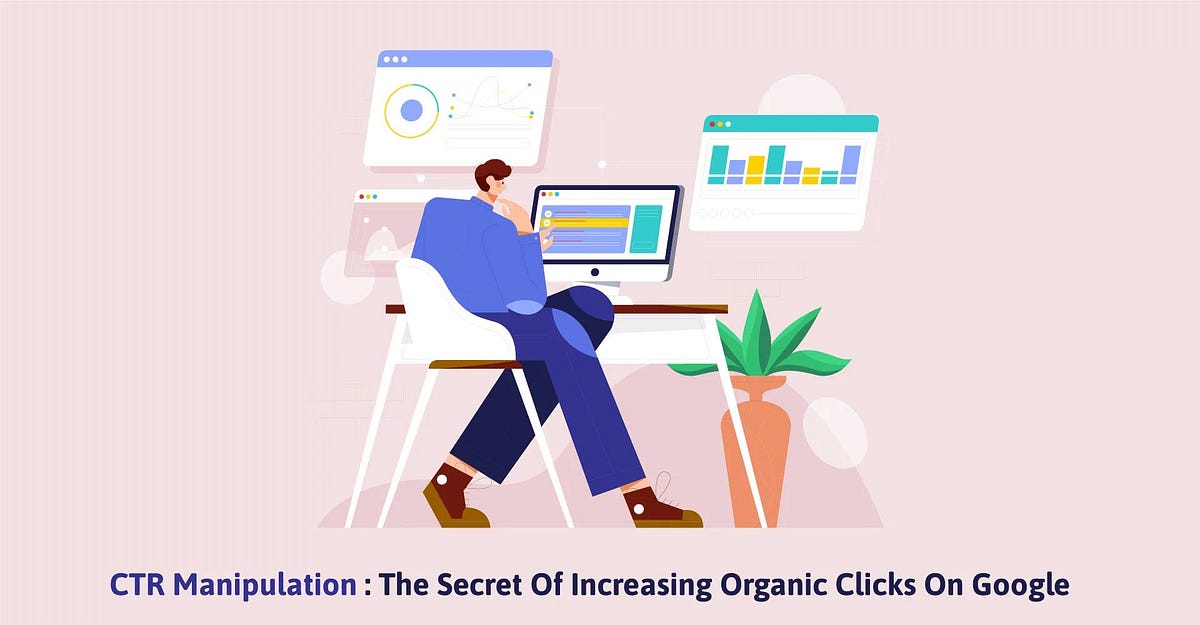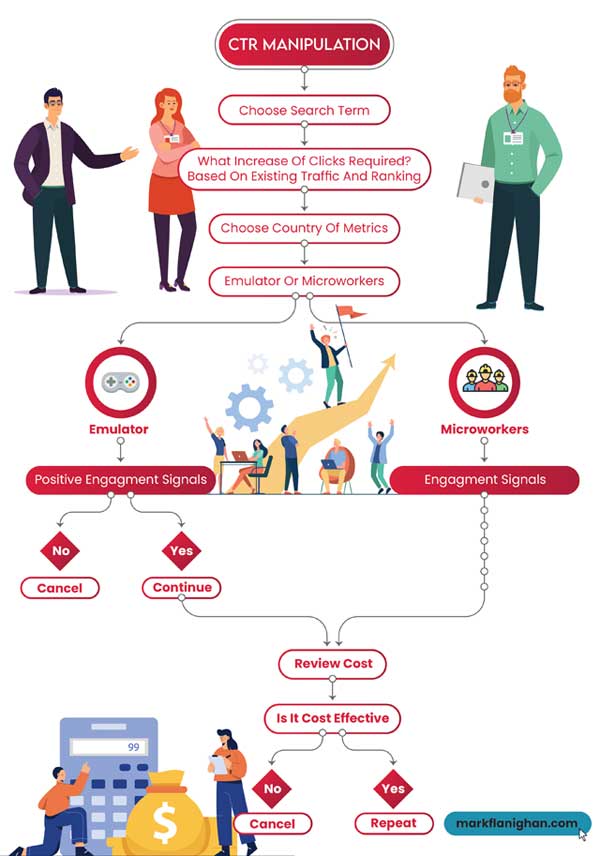Exploring the Partnership In Between CTR Manipulation Solutions and User Habits
In the world of digital advertising and marketing, the influence of click-through price (CTR) adjustment services on user actions stays a complex and interesting topic. As on-line systems progressively depend on CTR metrics to determine the success of web content, products, and services, understanding just how these manipulated rates effect individual involvement and decision-making processes is critical. The interaction in between CTR control and customer habits questions about credibility, trustworthiness, and the moral implications of such practices. By studying the elaborate partnership in between CTR adjustment services and customer habits, appealing insights emerge that may improve our understanding of digital marketing strategies and their results on customers.
Influence of CTR Manipulation on Habits
Evaluating the influence of Click-Through Rate (CTR) adjustment on individual habits exposes essential insights into the dynamics of online interaction. CTR manipulation entails synthetically blowing up the variety of click a particular web link or advertisement to deceive customers and search engines. This practice can bring about an altered perception of a page's popularity or importance, inevitably influencing user behavior.

Additionally, CTR control can skew the information made use of by formulas to customize user experiences. This can lead to customers being served material that does not align with their preferences or passions, eventually causing a decrease in customer fulfillment and involvement. Understanding the effect of CTR control on customer actions is vital for preserving openness and trust in online interactions.
Individual Engagement With Manipulated CTR
User engagement with controlled CTR data commonly leads to manipulated perceptions of online web content appeal and importance. When users interact with web content based on unnaturally inflated Click-Through Rates (CTR), they may think that particular details, items, or services are more popular or trustworthy than they actually are. This can lead to individuals choosing based upon misleading data, resulting in potentially negative end results.
Engagement metrics like likes, shares, comments, and time spent on a web page are usually influenced by CTR manipulation. Users might be much more inclined to engage with web content that appears to have higher engagement rates, better continuing the cycle of skewed assumptions. As a result, content designers and advertisers may focus on producing web content that creates high CTR as opposed to focusing on producing really useful and pertinent material.

Mental Impacts of CTR Adjustment

Furthermore, the mental impacts of CTR manipulation can also materialize in modified decision-making procedures. Users may be extra likely to click content entirely based upon its perceived popularity, instead of its actual value or relevance to their needs. This behavioral shift can result in a superficial interaction with on the internet content, where individuals might ignore top notch but less prominent offerings for those with artificially boosted CTRs.
Fundamentally, the psychological ramifications of CTR control highlight the importance of maintaining openness and credibility in online communications to promote authentic individual interaction and count on.
Ethical Considerations in CTR Manipulation
CTR manipulation elevates concerns concerning tricking customers, distorting data analytics, and jeopardizing the look at here integrity of on-line web content. By synthetically blowing up CTR, customers may be misguided into clicking on web links or advertisements they would certainly not have actually picked or else, leading to a disingenuous online experience.
Another moral facet to consider is the justness of manipulating CTR to obtain an unfair advantage over competitors. Participating in such techniques not only goes against concepts of justice but also undermines the count on that individuals place in online systems. It is essential for services and digital marketing professionals to support moral requirements in their methods to guarantee transparency, reputation, and long-lasting sustainability in the on the internet environment.
Ramifications for Digital Marketing
CTR manipulation can lead to skewed data analytics, misdirecting online marketers right into thinking that their projects are doing far better than they really are. When customers understand that CTRs have actually been manipulated, it can deteriorate count on in the brand, leading to lasting adverse consequences for consumer commitment and brand name track record.
In addition, the usage of CTR control services can develop an unreasonable competitive landscape, where companies that engage in such practices gain a man-made benefit over those that stick to ethical advertising requirements. This can stifle technology and creativity in digital advertising, as success ends up being more concerning manipulation tactics than supplying genuine value to customers. Ultimately, the effects of CTR adjustment for digital marketing expand past short-term gains, affecting the total sustainability and credibility of advertising and marketing initiatives in the digital realm.
Conclusion
Finally, go to this web-site the relationship between CTR control services and user habits is intricate and multifaceted. The effect of CTR my explanation adjustment on habits, user interaction with controlled CTR, psychological results, honest factors to consider, and effects for electronic advertising and marketing all contribute fit this connection. Understanding these characteristics is essential for marketing professionals and researchers alike in order to browse the moral effects and make the most of the efficiency of their electronic marketing techniques.